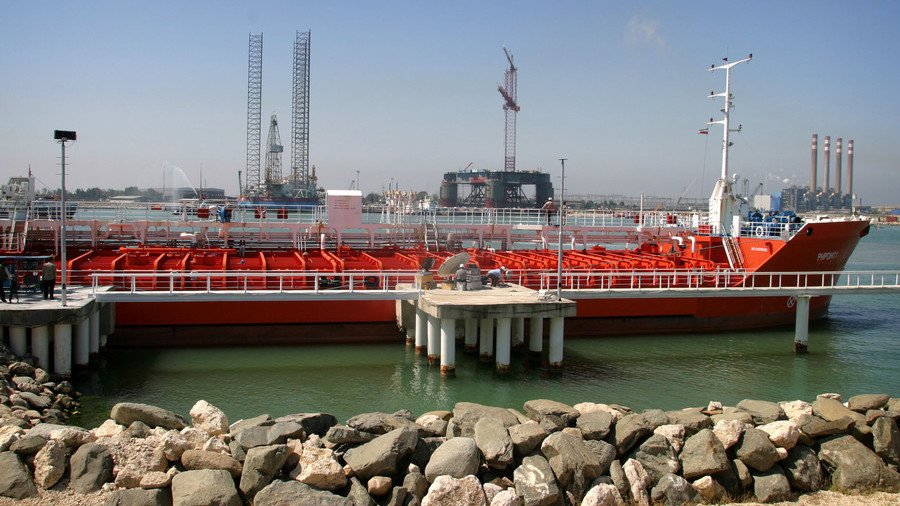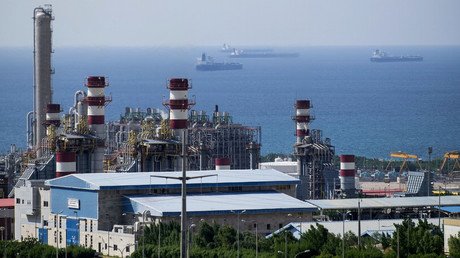Iranian oil exports plunge despite ‘creative solutions’

Iran’s oil exports have been falling much faster than expected, but Tehran is hoping to avoid the worst, deploying some creative solutions to keep exports from crashing too much.
Iran’s oil exports may have plunged as much as 600,000-700,000 bpd in August, falling as low as 1.66 million barrels per day (mb/d), according to the Wall Street Journal and SVB Energy International. The pain only grows worse as the November deadline for US sanctions on Iran’s oil industry approaches. SVB expects Iran’s oil exports to fall as far as 0.8 mb/d by November. That will amount to the loss of nearly 1 mb/d from April, the month before the US withdrew from the nuclear accord.
The supply disruptions have been more severe than many had expected because the US is taking a very hard line on sanctions, sending signals that Washington will grant few, if any, waivers to buyers of Iranian oil. That, in turn, is making it difficult for Iran to find insurance for its shipments and bankers to finance the deals.
All is not lost for Iran. The European Union and China have rejected US demands, and have tried to help Iran weather the onslaught.
Still, there authority and resolve is questionable. European politicians aren’t able to control the decisions made by European refiners, who began cutting purchases of Iranian oil months ago. China, for its part, also cut imports from Iran, despite signaling its intent to keep buying. China’s imports from Iran fell by around 250,000 bpd in August compared to a month earlier. India’s imports fell by as much as 400,000 bpd. It’s not clear that such a downward trend will continue, but it doesn’t bode well for Tehran.
Iran’s oil minister Bijan Namdar Zanganeh suggested that Iran has “other ways” to keep his country’s oil exports from falling too much. Iran could significantly discount its oil, which will make it appealing to buyers. It can also barter. Prior to the lifting of sanctions in 2016, India and Iran had an arrangement in which Indian buyers would purchase oil in rupees, with Iran using the rupees to purchase goods from India. That avoided the trap of using dollars, which will off limits to Iran under US sanctions.
Iran can also smuggle its oil, including over land through Pakistan and Afghanistan.
Bloomberg notes that Iran managed to export some oil during the last round of sanctions by turning off the tracking systems for its fleet of tankers and obscuring destinations on shipments. Furtive efforts such as these could keep about 200,000 bpd of exports in the dark, Robin Mills of Qamar Energy told Bloomberg. Mills says Iran could probably keep total exports at about 800,000 bpd through next year through a variety of strategies to evade the effect of sanctions.
The EU is hoping to entice Iran to stay within the confines of the 2015 nuclear deal and not abandon its commitments even though the US has withdrawn from the agreement and waged a belligerent “maximum pressure” campaign against Tehran. For what it’s worth, the International Atomic Energy Agency (IAEA), the UN watchdog over Iran’s nuclear program, said in a confidential report in late August that Iran continues to abide by its obligations, staying within required limits on enrichment and enriched uranium stocks.
Europe’s last-ditch strategy is to try to wait out Trump. If Europe can convince Iran can continue to comply with the nuclear deal for a few more years, perhaps a new US president will come into office and take a different approach and rejoin the nuclear deal.
To do this, Europe may try to develop an alternative system to transfer money for major financial transactions, outside of US influence, according to NBC News. Some European countries may even use their own central banks to conduct the transfers, since commercial banks are backing away from Iran for fear of running afoul of US sanctions.
It is not at all clear that this will be enough. Iran is under extreme economic pressure due to falling oil exports and a plunging currency. That is undercutting the political position of Iranian President Hassan Rouhani, who staked his administration’s legacy on negotiating with the United States. Hardliners are gaining ground at his expense.
Either way, Iran’s oil exports are heading down. It’s just a question of how far and how fast.
This article was originally published on Oilprice.com
















